Answer: Psychedelic drugs apparently.
Thanks to a suggestion from @TomFulp for the book "How to Change Your Mind" by Michael Pollan, I got to go on a "trip" into the history of LSD, Magic Mushrooms, and even a little hallucinogenic toad venom.
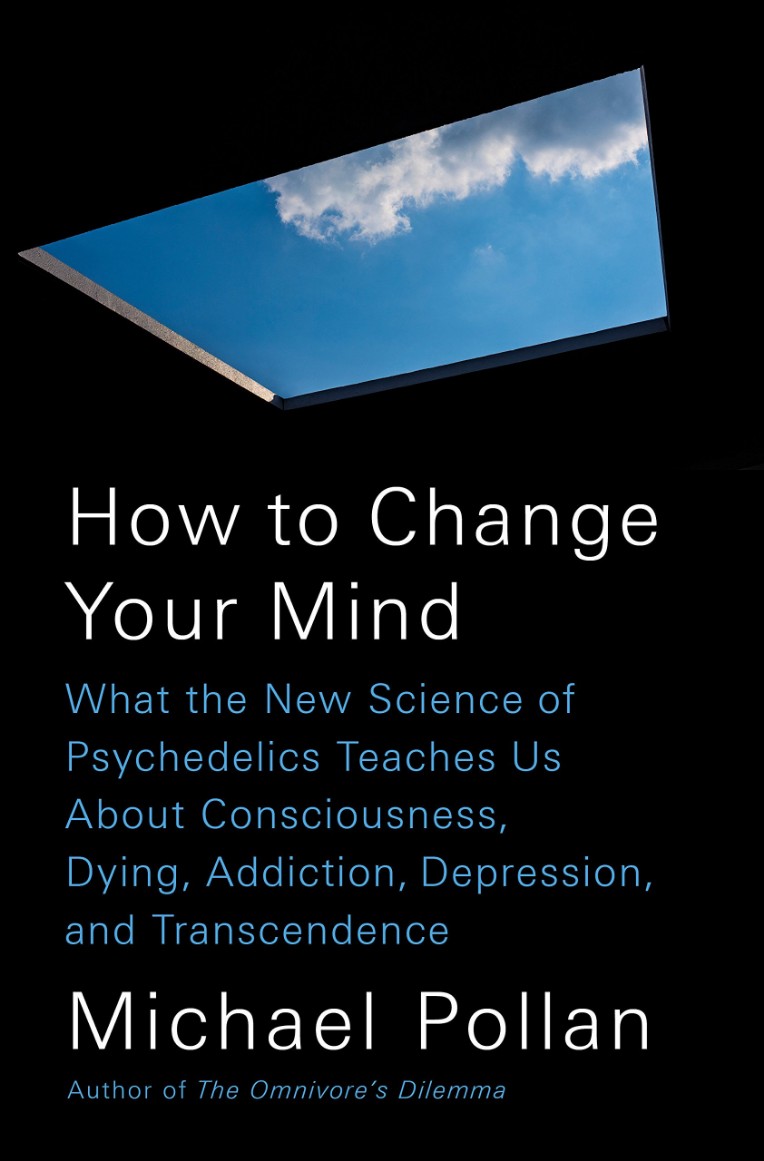
The full title is: "How to Change Your Mind: What the New Science of Psychedelics Teaches Us About Consciousness, Dying, Addiction, Depression, and Transcendence"
The book got off to a rough start for me because of how the author approached retelling the history of hallucinogenics. He jumped around a lot and I got a little lost because of the non-chronological approach. However, the ending more than made up for the beginning and I ended up thinking a lot about consciousness, my identity, my ego, reality, and therapeutic "drugs."
The thrust of the book is that hallucinogenic drugs got a bad reputation when they were first discovered and have been mislabeled as overly dangerous, addictive (they're not at all), and unfortunately tied to "counter culture," anti-authority, and mysticism.
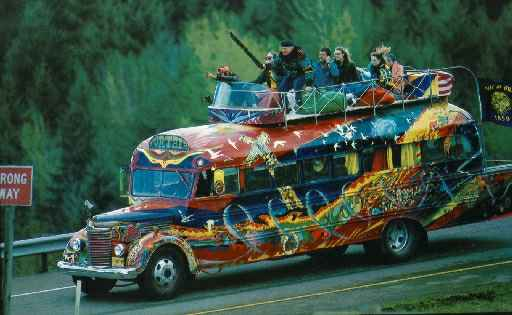
But, in reality, these "medicines" have incredible potential for helping people, both the sick and the "well." Some of the therapeutic benefits include:
- Helping the terminally ill come to grips with, and be ok with passing on (hospice care)
- Curing addiction better than any other clinically-tested drug
- Curing depression and many other disorders
- Helping people overcome serious trauma
The most-fascinating section of the book (the end) discussed the science behind what occurs in the brain when on this specific brand of drug. Interestingly, the drugs do not necessarily INCREASE blood flow and activity in all parts of the brain, rather they REDUCE blood flow and activity to the very important "Default Mode Network" which, among many other things, is where we get our sense of identity, self, or ego. Thus these drugs tend to "dissolve" a person's ego, infuse them with a sense of wonder, and make "all things new" and fascinating.
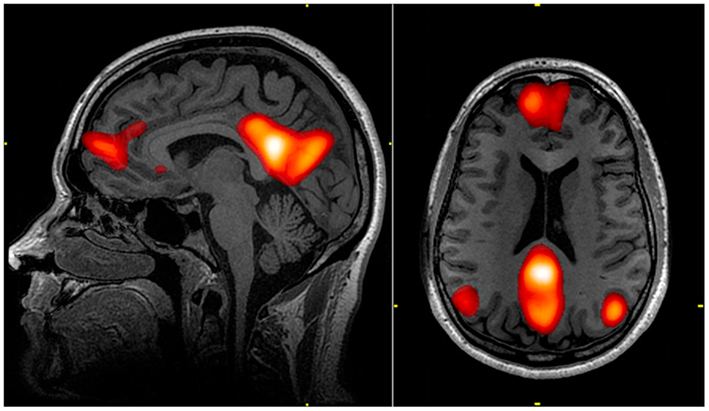
This part of the brain is also associated with our sense of remembering the past and planning for the future, so when it's inhibited, a person tends to only perceive the "now." What really got me thinking is the fact that certain other activities, like breathing exercises and especially meditation have the same effect on the DMN. This really makes me want to learn more about meditation since I don't think I'm going to be trying hallucinogenics any time soon (though I'm much more open to the idea now...)
Another quirky part of the book I liked was a discussion around Magic Mushrooms aka: Psilocybin in which the idea was tossed out that there's really no good evolutionarily-apparent reason for mushrooms to include hallucinogenic properties in their "fruiting members" (the parts that stick out above the ground and make spores). So, some people think that the hallucinogenic properties of these mushrooms are actually an attempt by these organisms to COMMUNICATE with humanity, expand our consciousness, and help us understand our place in the larger ecosystem of the planet.
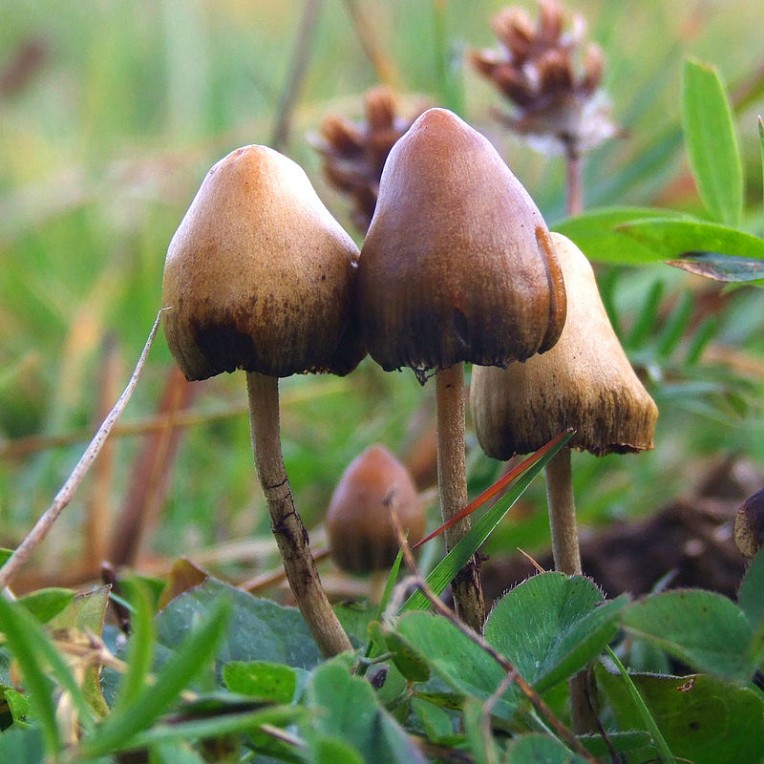
This is a neat idea to me because I think it's very unlikely that communication between species (or with alien lifeforms) would be in a format we're used to. So, the idea of wise, visionary mushrooms "drugging" us with chemicals that affect our brains in very specific ways that lead to lifetime attitude changes that ultimately benefit them (and us) is kinda fascinating!
The book also highlights the inability of the current US drug bureaucracy to handle these particular kinds of drugs because they don't conform to the established methods of "double blind" testing (because there's no effective placebo: both users and observers can tell in a few seconds if the person got the "real" drug or not). There are other aspects to the incompatibility of these drugs with the modern medicine world too, mostly around how, for "best results," these drugs should be taken in the presence of a guide who can "hold the space" in reality for the person taking them to keep them safe, but also to help them prepare before and interpret and unpack the experience once it's over. You can't really see that kind of practice catching on in modern, cold, clinical doctors' offices.
You have to respect the author for putting his own health on the line in this book. He actually took each of the drugs he talks about, despite being 60+ years old (and having a heart condition!). His descriptions are pretty fun to read... especially his "diamond-encrusted urine" dump.
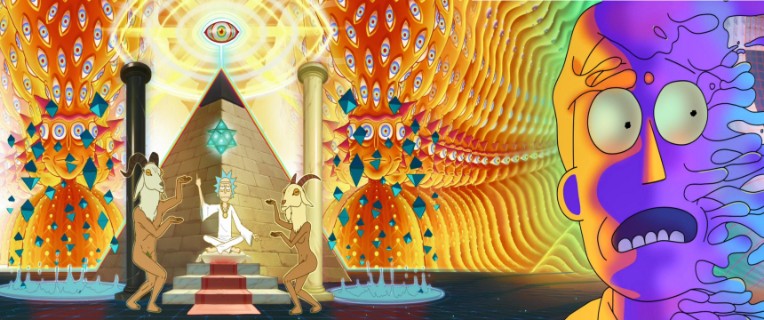
I have other thoughts about the evolution of drugs in general. They often start out as recreational until valid medical use cases are discovered/developed. Unfortunately this period of purely-recreational use can brand something with great potential as "dangerous" or frivolous making legit usage tough to roll out because of how slowly public opinion changes. This happened a long time ago with nitrous oxide, and recently with marijuana/cannabis, and it looks like we're turning a corner with hallucinogenics now too.
So yeah, I recommend this book pretty highly. It changed my mind about a lot of things and gave me a lot to reflect on.
I'm currently reading "A Short History of Nearly Everything" by Bill Bryson which helps you get a, surprisingly deep, look into "nearly everything" having to do with SCIENCE.
Next on my list is a co-worker's sci-fi suggestion: "Stranger in a Strange Land" by Robert Heinlein.
Drop me a message, I'd love to hear from you!
EggysGames
I have taken most hallucinogenic drugs plus many other drugs. Each experience was amazing. I have regretted the use of some substances, but not these ones. I think it's something everyone should do at least once.
From LSD dissolving my ego and just walking around the house with friends forgetting my sense of sense, just enjoying being a human around other humans. The wavyness of the walls, the carpets twirling up and forming mini cities. Shrooms giving me amazing colours and deep introspection.
Then theres DMT. The stuff made in your brain to make you dream. This trip was unlike any other. It was 6 hours of LSD in 10minutes. After injestion my body was paralyzed to the couch as the couch lifted up on the wall. The music in the background shot through my body like eletricity and out my eyes into fireworks. I could think in about 10 different minds at once, and eventually you leave your body to be greeted by aliens/god/diety after a tunnel of light. The same reason people see a tunnel of light when they die because the DMT is released in your brain.
Do drugs lead to creativity? maybe. But for me it more opens your mind to one thing you never considered, simply changing your perspective can change the entire world. Perhaps every person does not see the same perception of reality as each other.
BoMToons
Pretty much exactly what's described in the book! I totally agree that a seemingly small shift in our fundamental perceptions, or a brief experience of "something else" can affect us positively forever after.